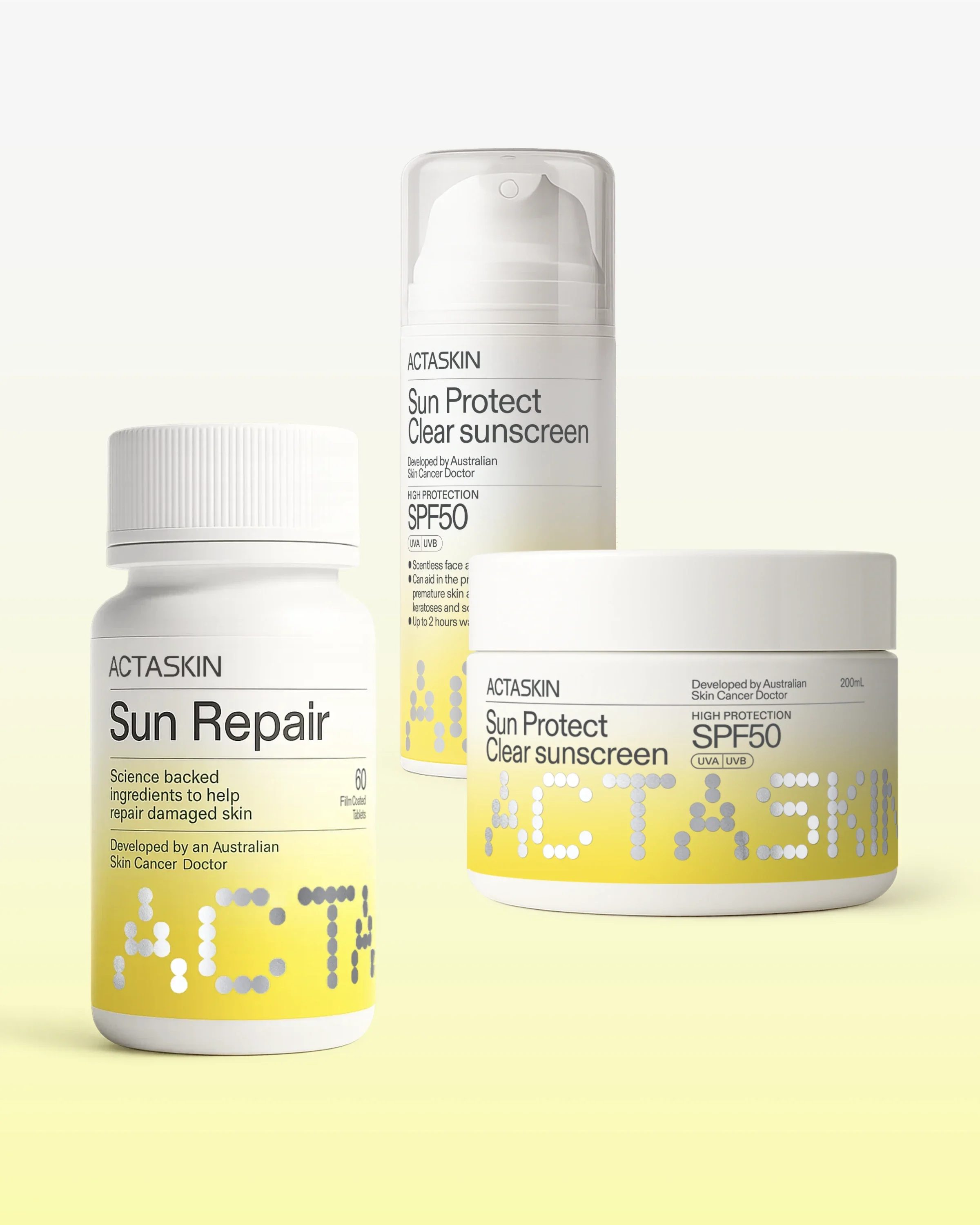"I have olive skin, so I don’t have to be as careful with sun protection"
It's a common belief that individuals with olive skin are somehow protected from skin cancer. Many of us fall into the trap of thinking that if we are able to get a tan, we are immune to the harmful effects of UV radiation. However, this is far from the truth, and it's crucial to understand why this myth is dangerous.
Olive Skin Doesn’t Equal Immunity to Skin Cancer
Tanning may give you a golden glow, but it doesn’t necessarily indicate that your skin is more resilient to sun damage. The ability to tan is often mistaken for having “olive skin,” but this doesn’t mean you are protected from skin cancer.
I’m frustrated because I see patients every day who overestimate their skin tone. They have fair skin, but they think they fall into the darker white or olive category. So they end up following the wrong advice. If you’ve got Anglo-European heritage, you’ve got fair skin
Check Your Bum – It’s the True Indication of Your Natural Skin Type
A simple trick to remind yourself of your true natural skin type is to check your bum (or any other part of your body that's rarely exposed to the sun). This skin tone is a better reflection of your baseline skin type than the tan you develop after spending time in the sun. Even individuals with "olive" skin, who may tan easily, have areas of their body that never see direct sunlight, showing just how much melanin your body naturally produces.
You Should Learn About the Fitzpatrick Skin Type System
To understand why everyone, regardless of how well they tan, needs to be vigilant about sun protection, it helps to look at the Fitzpatrick Skin Type System. This framework doesn’t try to account for every subtle shade of skin or ethnic background. Instead, it sorts us into risk categories based on how much melanin we naturally have and how our skin responds to UV exposure. Yes, reducing the rich variety of human skin tones to just five or six types is a simplification—and it’s open to criticism. But the system’s value lies in its practicality. It gives us a way to assess risk.
My tip? Judge your natural skin type by looking at the colour of your bum cheek. That’s the skin that rarely sees the sun and gives the clearest indication of your baseline tone. For most Australians, it’s a fair white—and that kind of skin burns easily.
-
Skin Type I: Always burns, never tans (very fair).
- Very fair skin, often light-coloured hair and eyes. Can burn within minutes in Australia
-
Skin Type II: Burns easily, tans minimally (fair).
- Bum is white, can get a tan but usually after repeated sunburns, even if they’re mild ones. Typical of Australians with Northern European heritage (i.e. UK or Ireland) accounting for 80% of Australians. This is the group most likely to think they’re olive skinned, when they’re not.
-
Skin Type III: Burns moderately, tans uniformly (light).
- The true olive group, often with heritage from Southern Europe (i.e. Greece, Southern Italy, Malta)
-
Skin Type IV: Burns minimally, tans well
- light brown skin
-
Skin Type V: Rarely burns, tans deeply
- brown skin
-
Skin Type VI: Never burns, deeply pigmented (dark).
- very dark brown/black skin
Skin Cancer Risk in Australians of European Heritage
In Australia, a large portion of the population is of European descent, and many of these individuals fall into Fitzpatrick Skin Types I-III. This group is at a high risk of skin cancer, as fair skin types have less melanin and are more likely to burn. UV exposure from the sun significantly increases the risk of skin cancers, particularly melanoma, which is more common in those with fair skin. For these individuals, wearing broad-spectrum sun protection is crucial. Australia has one of the highest rates of skin cancer globally, and prevention efforts, such as regular sunscreen use and avoiding excessive sun exposure, are key to reducing this risk.
High Skin Cancer Rates in Mediterranean Heritage Populations
It's not just people of Northern European heritage who should be concerned about skin cancer. Mediterranean heritage individuals—those from countries like Italy, Spain, Greece, and others—are also at significant risk for skin cancer. In fact, countries in the Mediterranean region follow Australia and New Zealand as some of the highest in the world for skin cancer rates.
Even with naturally darker skin tones, people of Mediterranean descent often have a history of frequent sun exposure, especially during younger years, which increases their risk of developing skin cancer. Despite the slightly greater amount of melanin in their skin, the damaging effects of UV exposure can lead to skin cancers like melanoma, basal cell carcinoma, and squamous cell carcinoma. Therefore, sun protection is equally essential for individuals with Mediterranean heritage.
The Importance of Sun Protection for All Skin Types
While those with lighter skin are at higher risk, individuals with olive or darker skin tones are still susceptible to UV damage and skin cancer. Wearing sunscreen, seeking shade, and avoiding tanning beds are essential steps to prevent skin damage and reduce the risk of developing skin cancer.
So bottom line is, just because you can tan doesn’t mean you’re immune to skin cancer. By understanding the real risks and practicing effective sun protection, you can reduce your risk and protect your skin for the long term.


![MYTH: The Sun Is Not As Harsh In [popular destination]](http://actaskin.com/cdn/shop/articles/actaskin-myth2.webp?crop=center&height=4022&v=1747701774&width=3094)
